#M. NourbeSe Philip
Text
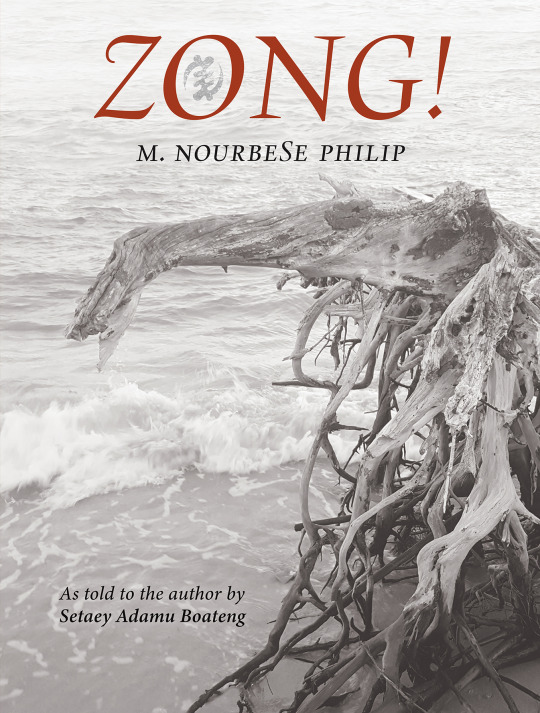
M. NourbeSe Philip, (2008), Zong!, Invisible Publishing, Toronto, 2023
#graphic design#typography#poetry#visual writing#book#cover#book cover#m. nourbese philip#marlene nourbese philip#invisible publishing#2000s#2020s
16 notes
·
View notes
Photo
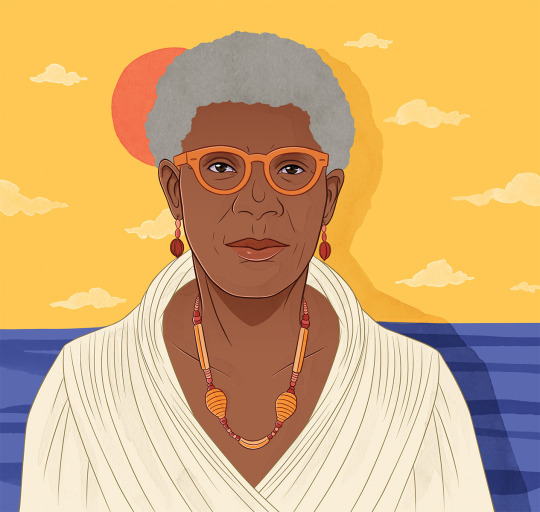
Why This Poet Declared War on Her Own Book
When M. NourbeSe Philip’s work on a slave ship massacre was translated without her consent, she didn’t recognize it anymore. Who ultimately owns the stories we tell?
The translator’s presence in Zong!, though, was not quite the object of Philip’s distress; Philip is not a Nabokovian purist. Translators have worked on her books before, with her approval. The problem was of another nature. Among the myriad reasons Zong! has become such a widely studied work are its disjunctive, distinctive visual qualities—a kinetic form charged with spiritual intent. The poetry sweeps across 180 pages in the manner of vocal jazz or a disordered musical constellation. As if carried off by waves, words float away from each other, swirl around, casting off letters like articles of clothing; syllables gurgle or stutter, refuse meaning. Isolated phrases, seemingly at random, tilt into cursive or italics. Submerged at the bottom of each page are imagined African names for the drowned, whose deaths were originally recorded as “negroe man” or “negroe woman.”
Read more at thewalrus.ca.
Illustration by Stephanie Singleton (stephaniesingleton.com)
#Poetry#M. NourbeSe Philip#Zong!#Translation#Slavery#Colonialism#Illustration#November 2022#Connor Garel#Stephanie Singleton
7 notes
·
View notes
Text
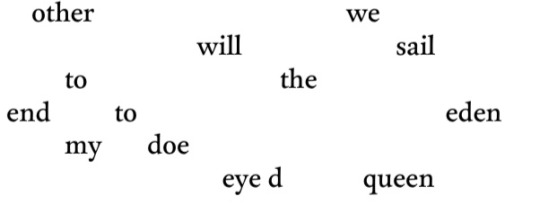
Zong! As Told to the Author by Setaey Adamu Boateng by M. NourbeSe Philip
3 notes
·
View notes
Text
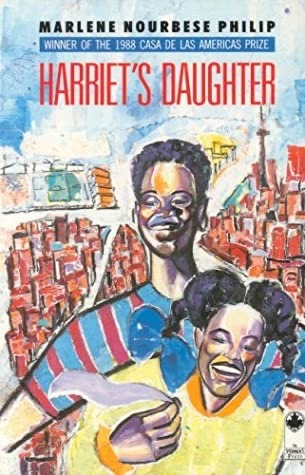
Harriet's daughter (1988 book by M. NourbeSe Philip)
Harriet’s Daughter was published in 1988 by Heinemann (England) and The Women’s Press (Canada). This book was one of two runners up in the 1989 Canadian Library Association Prize for children’s literature; it was also first runner up in the Max and Greta Abel Award for Multicultural Literature, City of Toronto Book Award Finalist 1995 and **STAR CHOICE** of Educational Impact (Nov ’89).Harriet’s Daughter has been critically acclaimed and much reviewed as ” a lively and insightful adolescent novel…about friendship, coming of age and identity”, a story “told with warmth, humour and skill.” that is “riveting, funny, and technically accomplished.” The dialogue has been said to come “right off the page –you’ll find yourself reading it aloud”. It makes “the fact of being black a very positive enhancing experience”, and is a book “about friendship, loyalty and love that everyone from nine to ninety can enjoy.”
taken from: https://www.nourbese.com/novels/harriets-daughter-2/
#myblackgirlmagicsyllabus#my black girl magic syllabus#books by black women#for black girls#M. Nourbese Philip#Canada#books#1000 black girl books#we need diverse books#ya books
0 notes
Text
Should I post the blackout poem I wrote using the transcript of that one Autism Speaks propaganda ad directed by Alfonso Cuarón?
#technically it's a white out poem but whatever#it was a class assignment after reading M. NourbeSe Philip's book of poetry Zong! which used the same technique
1 note
·
View note
Text
“But I am hunting for something - anything - to give me some bearing, since I am, metaphorically speaking, at sea, having cut myself off from the comfort and predictability of my own language - my own meaning.”
- M. NourbeSe Philip, Zong!
0 notes
Text
✨sealey challenge reading list✨
as threatened: what i want to read in august for the sealey challenge. but first, a few thoughts:
i’m not going to truly and fully follow the challenge; 31 poetry books in 31 days means i spend very little time with each one, and i like to read more deeply. so i’m chipping away at some of my backlog, and rereading a few things that feel relevant, and also including some theory.
this is my personal list. it’s very informed by what i’m reading / curious about lately. this is not meant as a primer for anyone else, but please do take all of these as recommendations.
poetry
finish zong!, m. nourbese philip
lunch poems, frank o’hara (dreamt abt him recently)
i do everything i’m told, megan fernandes (met her recently) ✔️
beast meridian, vanessa angélica villarreal (met her recently)
the reckoning of jeanne d’antietam, matthew robert moore ✔️
almost obscene, raúl gómez jattin ✔️
eyes bottle dark with a mouthful of flowers, jake skeets (reread) (met him recently)
crush, richard siken (reread) ✔️
please make me pretty, i don’t want to die, tawanda mulalu (reread)
theory
read a lecture or two from madness, rack, and honey by mary ruefle ✔️
“my black joy is my primary aesthetic,” robin coste lewis
“a poem is a walk,” a. r. ammons
“the rejection of closure,” lyn heijinian
“some notes on organic form,” denise levertov
“projective verse,” charles olson
38 notes
·
View notes
Note
Hi :) With many (including myself) asking you for book recs, I thought it might be nice to recommend you a book. I just read Zong! by M. NourbeSe Philip for a class on literature about the Middle Passage, and I thought its experimental nature might appeal to you, plus Philip's struggles with language/genre and telling untellable stories documented at the back of the book. The poetry is a powerhouse with a lot to dig into, and I highly recommend it! (I would warn, however, that while somewhat abstract, it does deal with various sensitive subject matters such as slavery, murder, dehumanization, sexual assault, and more)
thank you, i *love* Zong! and have read it several times - most recently for a grad class on hybrid poetics.
If you liked (or were enthralled/horrified/profoundly affected by) Zong!, you may also be interested DMZ Colony by Don Mee Choi, Lose Your Mother by Saidiya Hartman, Under Flag by Myung Mi Kim, Whereas by Layli Long Soldier, and Occultations by David Wolach.
#*narrator voice* not to be outdone sarah librarycards must respond to one benign book rec fivefold#ask#mr-saavik#thank you :3#book rec
7 notes
·
View notes
Text
Why This Poet Declared War on Her Own Book
When M. NourbeSe Philip’s work on a slave ship massacre was translated without her consent, she didn’t recognize it anymore. Who ultimately owns the stories we tell?

by Conner Garel
In 2008, the Toronto-based writer M. NourbeSe Philip published a dizzying, fragmented book-length poem entitled Zong!: As Told to the Author by Setaey Adamu Boateng, a seven-year archival project that bears witness to those atrocities and attempts, as the author says, to “defend the dead.” She composed and rearranged the text using words sourced exclusively from the two-page legal case report of the insurance claim she tracked down in the University of Toronto’s law library. In time, Zong! became a widely studied work of contemporary literature, performed dozens of times in at least nine countries and excerpted in arts galleries globally. Critics have described it as a masterpiece.
In early 2016, Philip received an enthusiastic email from a woman called Renata Morresi, a translator and poet who teaches American literature at the University of Padua in Italy. Morresi wanted to translate Zong! into Italian. Her academic research focused on, among other subjects, “slavery and its ‘unconventional’ representations,” and she had been recently awarded Italy’s national prize for translation. She thought Zong! could be valuable to Italians who were striving to make sense of their own contemporary crisis. That year alone, CNN reported, an estimated ninety migrants from North Africa and other Arab countries were drowning every week in the Mediterranean in their bid to escape violence, poverty, persecution, and war. Morresi did not, at the time, have a publisher for the translation or a contract or anything in the way of a plan, and Philip felt the emails gave the enterprise the feel of an unserious project. She advised Morresi to contact Wesleyan University Press, the book’s American publisher, which owned rights to Zong!
“I don’t know whether you speak Italian,” Morresi wrote to Philip, “but if you feel like we can discuss the drafts (it would certainly be an invaluable help for me).”
The next time Philip heard from anyone about the Italian translation of Zong! was five years later, when a small Italian publisher called Benway Series emailed the proofs with an invitation to the book’s online launch. It came as a surprise. Neither Morresi nor Wesleyan had informed her that a formal agreement was signed and subsidiary rights to her book transferred. By then, two other translators had joined the project. The translation was supported by the Canada Council for the Arts, a public funder that serves Canadian artists and arts organizations, but the $13,350 it paid Benway Series had likewise changed hands without the artist’s knowledge. (Part of the CCA’s literary translation program serves international publishers.)
READ MORE
34 notes
·
View notes
Note
hi :) 3, 12, 14, 25 for the book ask?
Hi!
3. What were your top five books of the year?
There isn't an obvious answer - my first instinct was to say Moby-Dick, which I read in 2021…
I spent most of the year following up on my interest in "workplace novels," or "labor fiction" (which emerged when I started looking for a job - incidentally, while reading Moby-Dick, possibly one of the first workplace novels?), and I enjoyed all novels I read as a result: Zola's Germinal, The Dragon's Village, Olga Ravn's Employees… The novel that stands out from these is Bibiana Candia's Azucre: una epopeya (which I read in Polish, but as far as I can tell it has not been translated into English). It is an experimental novella about the Spanish men 'hired' by Urbano Feijóo Sotomayor to replace the more expensive slaves on Cuban plantations. The designation as 'epic' helps to make sense of this - the novella recreates the experience of the workers, but also the cattle they work with, the objects… Like an epic, it is interested in a communal experience, but it writes it from the bottom up.
I obviously enjoyed Esther Yi's Y/N, but it might be the recency bias.
Another book that made a strong impression was Ronald Syme's Roman Revolution, a 580 pages long account of the collapse of the late Roman republic which I read over the summer. Syme finished it in 1939, with the rise of fascism in Italy as the obvious point of reference. The combination of the eloquence typical of early twentieth-century scholarship with barely restrained fury made it a very compelling read. It's not the best introduction to the period, as Syme assumes a passing familiarity with various figures, offices, and events, that I simply did not have, but the book has been, and remains extremely influential, which is why I chose to read this rather than anything else. I still catch myself thinking about it when watching the news sometimes - it is very clear about the consequences of creating states of exception in politics.
12. - just answered!
14. What books do you want to finish before the year is over?
I am not sure that I will finish anything within the next couple of days - I am in the middle of several books. Mostly, I am listening to the audiobook of James Frankie Thomas's Idlewild, which so far has been a novel about an intense queer friendship at a New York private school in the immediate wake of 9/11. A part of what it does is answer the question of why so many teenage girls* become obsessed with gay* men. It's unpleasantly real about all this; Thomas knows really well how to make the readers cringe. (The reader for the audiobook is very good, too).
25. What reading goals do you have for next year?
I have a list of fiction books I want to read this academic year, but I am not sure whether I will be able to stick to it. A specific goal I have and want to keep is to read more contemporary poetry, which I started doing late this year. I am now surrounded by people who care about it more than I do, so I want to know what is it that they are talking about. I would say that rather than be interested in all of recent poetry, I have been drawn to works that seek to capture a community's experience of a specific historical moment - essentially, more formally experimental historical fiction. I got M. NourbeSe Philip's Zong! and Don Mee Choi's DMZ Colony and Hardly War from the university library, so hopefully I will be able to read them in a not too distant future...
#thanks!#pninism#readings#if anyone has contemporary poetry recs... let me know. i know nothing and i am not asking people obsessed with The Lyric
5 notes
·
View notes
Text
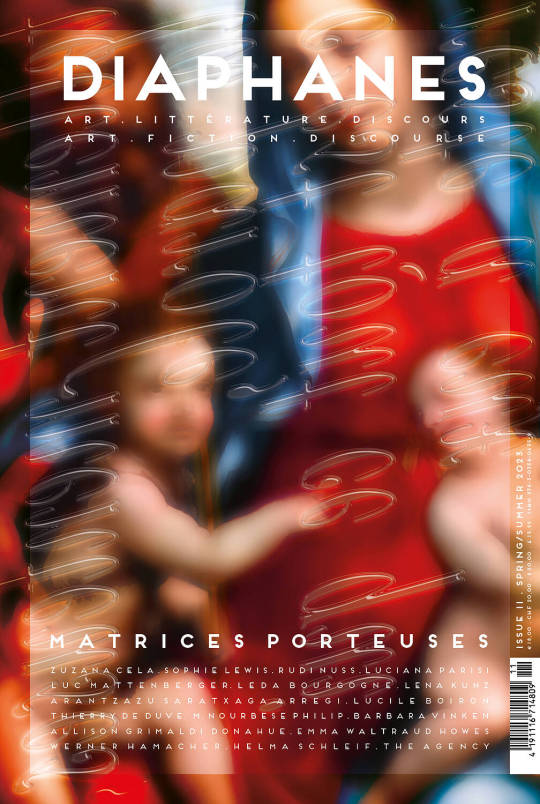
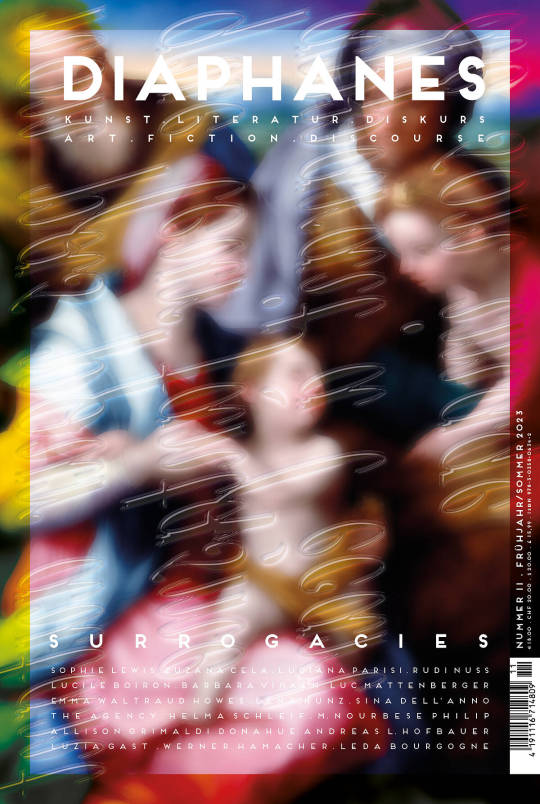
Magazine Diaphanes _ 11 Surrogacies out now Redaktion: Marie Glassl, Michael Heitz, Hednrik Rohlf
Myths and visions of motherhood and fathering, brings together artistic and theoretical positions on reproduction and communication, gender and genus, addressing and conception.
DIAPHANES 11 orbits around the “ambiguities of the maternal significate” (Kittler) and speculates about the idea of humanity as an “absolute family”(Novalis).
This issue explores practices of human and non-human substitution, plays with the myths and visions of motherhood and procreation, gathers artistic and theoretical positions on reproduction and communication, gender and genus, addressing and conception.
What claims the place of the nuclear family in the face of hybrid kinships and social freezing? What could new elective kinships be in times of chatbots and pseudonymisation? Is this the time for surrogate mother tongues and extra-human rhetorics of surrogation?
Sophie Lewis claims a gestational communism and hunts our grannies. Barbara Vinken reflects on spiritual motherhood, Luciana Parisi on human automata and gendered proxies. For Zuzana Cela, language is a foreign body that can be invaginated. Werner Hamacher strolls through mother museum, which is also a brothel. Arantzazu Saratxaga Arregi discovers the evolutionary disobedience of the girl and Thierry de Duve a completely different pleasure with Joseph. Rudi Nuss tells of the new love for pregnant men, Allison Grimaldi Donahue of bad kinship in the house of language, M. NourbeSe Philip of a foreign fear. Leda Bourgogne, Lucile Boiron, Lena Kunz and Emma Waltraud Howes occupy the place of these attributions with their images.
3 notes
·
View notes
Text

M. NourbeSe Philip, Bla_K. Essays and Interviews, «Essais» Series No. 3, Book*hug Press, Toronto, 2017
Cover Image: NASA Image and Video Library
Cover Design and Layout: Kate Hargreaves
#graphic design#typography#essay#poetry#book#cover#book cover#m. nourbese philip#marlene nourbese philip#kate hargreaves#nasa image and video library#book hug press#2010s
8 notes
·
View notes
Text
Violent Phenomena: 21 essays on Translation

language is a dwelling, and as a result, that different languages establish different dwellings in the world, different lights and different gods, different works.
—Between Crié and Ècrit by Monchoachi tr. Eric Fishman
Violent Phenomena: 21 essays on Translation is an anthology of writing by 24 contributors featuring a breadth of personal experience with culture, language, translation, publishing, and grappling with colonial and imperial legacies. As the introduction puts it ‘Above all this book is a challenge to inherited assumptions about translators and translations being neutral, making the case that every aspect of translation is political.’
Several of the contributors and their work I was familiar with prior. While with others this book is the first I’ve encountered. Yet these essays all echo very long recurring discussions. Reflecting my personal preferences the highlight is Monchoachi’s Between Crié and Ècrit from 2007 in English translation from the French also with afterword by Eric Fishman. Then “Blackness” in French: On Translation, Haiti, and the Matter of Race by Kaiama L. Glover (previously Race and the Aesthetic in French and Francophone Cultures) and Why Don’t You Translate Pakistanian? by Sawad Hussain are likewise particularly engaging. Among the many other essays all worth going over.
If one has an interest in translation and decolonisation pick up this book.
Violent Phenomena: 21 essays on Translation edited by Dr. Kavita Bhanot and Jeremy Tiang is available in print or digital from Tilted Axis Press
Contributors: Gitanjali Patel, Nariman Youssef, Kaiama L. Glover, Aaron Robertson, Khairani Barokka, Anton Hur, Ayesha Manazir Siddiqi, Eluned Gramich, Sofia Rehman, Layla Benitez-James, Mona Kareem, Lúcia Collischonn, Sawad Hussain, Yogesh Maitreya, Sandra Tamele, Hamid Roslan, Onaiza Drabu, Shushan Avagyan, Monchoachi (tr. Eric Fishman), Elisa Taber, M. NourbeSe Philip, Barbara Ofosu-Somuah and Madhu Kaza
#translation#decolonisation#Violent Phenomena: 21 essays on Translation#essay anthology#nonfiction#bookopoly#cw: colonialism imperialism racism xenophobia ableism genocide Islamophobia pandemic terrorism
1 note
·
View note
Link

Please join me in petitioning to support the voice of international award-winning Caribbean-Canadian author M. NourbeSe Philip, who is seeking to protect her rights over her own work.
NourbeSe’s groundbreaking poetic piece Zong! has been translated into Italian (by an all white team of translators) and published in flawed form (by an all white publishing team) without NourbeSe’s involvement or permission. The responsible party — Benway Publishing — still refuses to cooperate with NourbeSe’s rightful request that this problematic text be destroyed and a public apology be issued.
Signing this petition to protect NourbeSe’s authorship rights takes 10 seconds (and there is an option to be listed as an anonymous supporter, if you wish to do so). Just click the link above, sign, and share.
--- --- --- --- --- --- --- --- --- --- --- --- --- --- ---
MORE ABOUT ZONG!
Zong! is a book-length poem rooted in the historical text of the Zong Massacre criminal trial, indicting those responsible for the 1781 mass murder of an estimated 150 Africans aboard a slave ship. Zong! seeks to honor the memory of the African individuals killed in this horrific colonialist crime, and has been adapted into multiple acclaimed stage performances and visual art installations. You can learn more about Zong! on M. NourbeSe Philip’s website by clicking here.
#please share#share#signal boost#petition#black authors#racism#colonialism#literature#poetry#m. nourbese philip#benway publishing#translation#boost
25 notes
·
View notes
Note
hi! 11, 17, and 24 or choose another number if those don't spark joy
what was your favorite book that has been out for a while that you just now read? THE NAME OF THE ROSE BY UMBERTO ECO MY BELOVED!!! first published 1980!
did any books surprise you with how good they were? after nature by sebald, i did not understand the nature of his game
did you DNF anything? why? m. nourbese philip’s zong! though not because i disliked it—i liked it tremendously—but it’s an intentionally difficult read. at a certain point i set it down and waited so long to pick it back up again that i know i’ll have to just start over completely
5 notes
·
View notes
